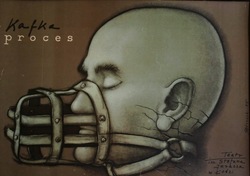Critical Legal Thinking
Setting up this website in the week of the G20 meeting and the protests that welcomed it to London is symbolic. It marks the beginning of a critical (legal) thinking fight-back. Neoliberalism is not just a pernicious economic model but an integrated worldview. It became the way we live, the institutional framework of our society, how we understand and imagine our relations with others and the world. Neoliberal capitalism formed the real, its institutions the symbolic and its ideology the imaginary orders of our societies in the last 40 years. A deeper affinity, an alliance, brought together greedy economic policies, political and legal moralisation and biopolitical governance.

Law, a privileged but not exclusive area for our intervention, is no longer the form or the instrument, the tool or restraint of power. Law has started becoming the very operation, the substance of power. Legal form is squeezed and undermined by the privatization of public areas of activity and the simultaneous publicisation of domains of private action. Legal content, on the other hand, becomes co-extensive with the operations of power. The global biopolitical turn and the new humanitarianism mean that the main normative claims of modern law, typically human rights, have now become an integral part of power relations, that they precede, accompany and legitimise the penetration of all parts of the world by the new order. Law acts as an empty signifier that attaches to everything from pavement walking, the ever-present CCTV cameras (surveillance being the new vis anglais), to Iraqi liberation. It is auto-poetically reproduced in a loop of endless validity but is devoid of sense or signification.
But the signs from Athens and France, from Iceland and the G20 protests are positive. Over the last few months, this model of capitalism, deregulated, free-market, greedy, based on financial gambling, cheap credit and disregard for any value other than profit has come to a crashing end. Bail outs, nationalisation, regulation aim at saving capitalism from its self-generated implosion. At the same time, they have delivered a huge blow to free market idolatry. The crisis of the economic model, something accepted as the indispensable benevolent background of life, gives us a unique opportunity to examine the totality of the settlement of the last 40 years. The best time to demystify ideology is when it enters into crisis. At this point, its taken for granted, natural, invisible premises come to the surface become de-naturalised, objectified and can be understood for that first time for what they are, ideological constructs. The aim of critical (legal) thinking is precisely to start this process and to examine recent institutional strategies as the indispensable companion of neo-liberalism.
This is our time, the time of protest, of change, the welcoming of the event. Critical (legal) theory must be re-linked with emancipatory and radical politics. We need to imagine or dream a law or society in which people are no longer despised or degraded, oppressed or dominated and from that impossible but necessary standpoint to judge the here and now. (Legal) critique is the companion and guide of radical change.
‘The role of the one who speaks is therefore not the role of the legislator or the philosopher, between camps, the figure of peace and of armistice, in that position of which already Solon had dreamt and also Kant. To establish oneself between adversaries, at the centre and above them, to impose a general law on each and to found an order that reconciles: this is not at all what is at issue. At issue, rather, is the positing of a right marked by dissymmetry, the founding of a truth linked to a relation of force, a weapon-truth and a singular right. The subject that speaks is a warring – I won’t even say a polemical – subject.’
Michel Foucault
We invite further contributions to Critical Legal Thoughts: Please Email Here to mail@criticallegalthinking.com
Source: http://www.criticallegalthinking.com



